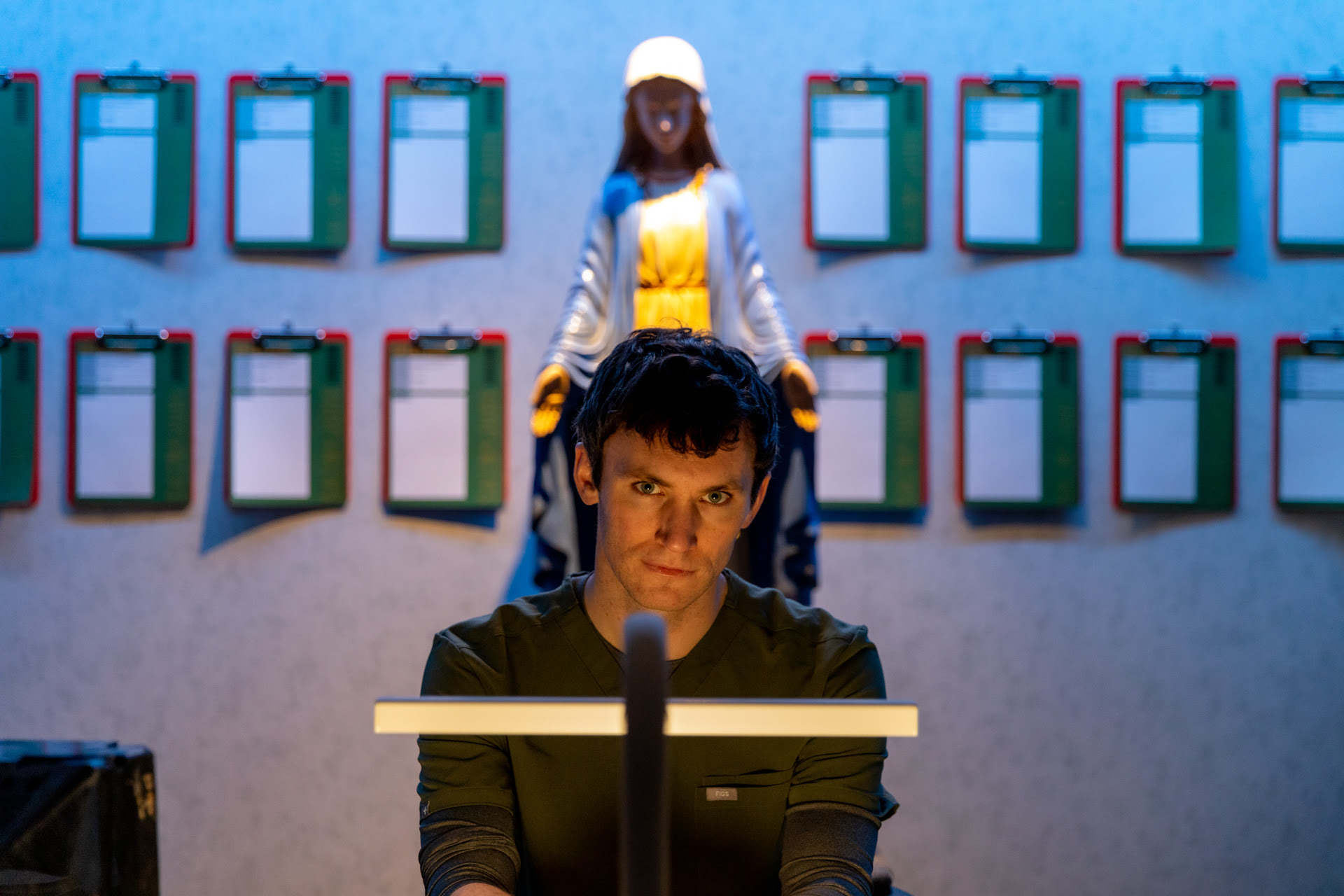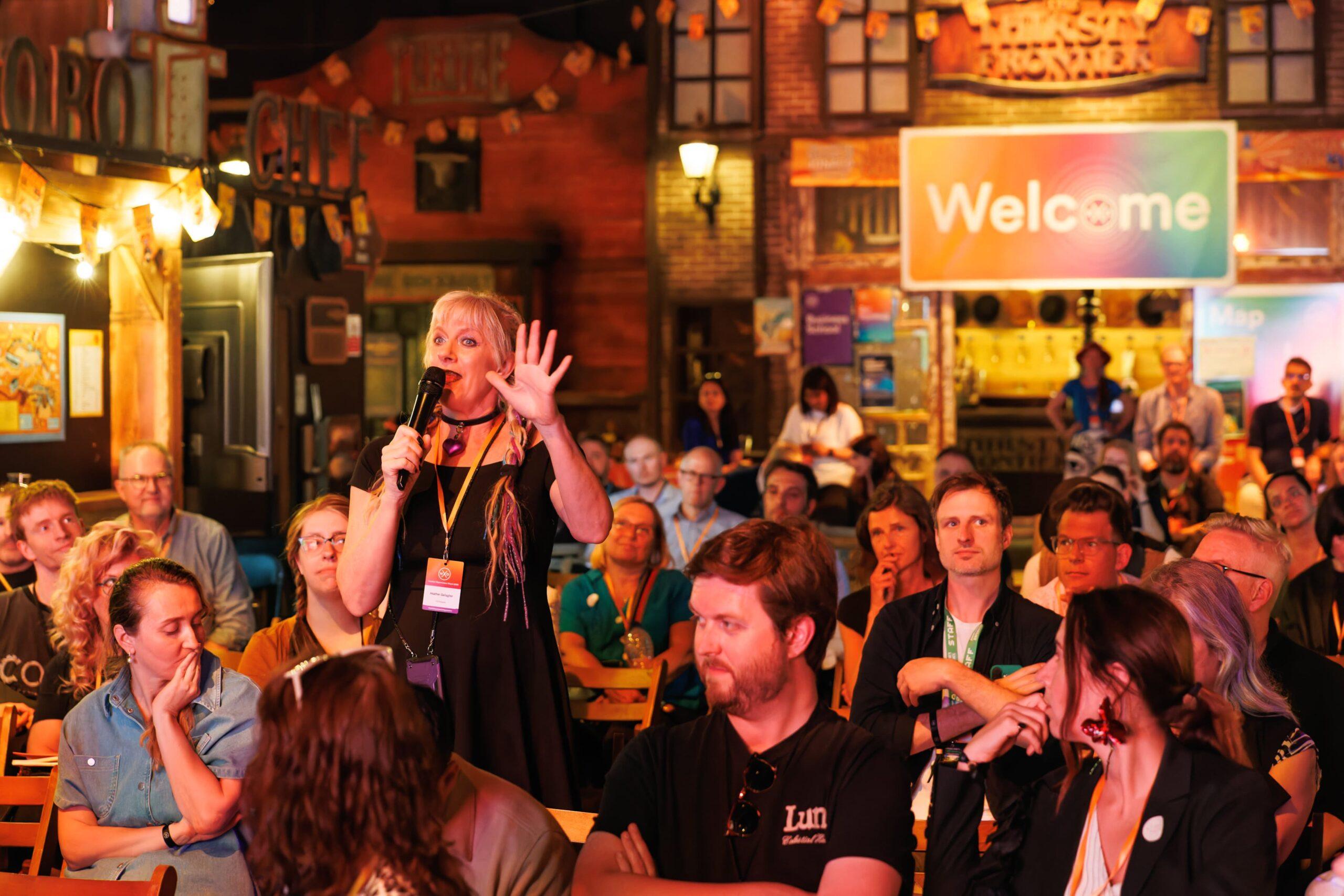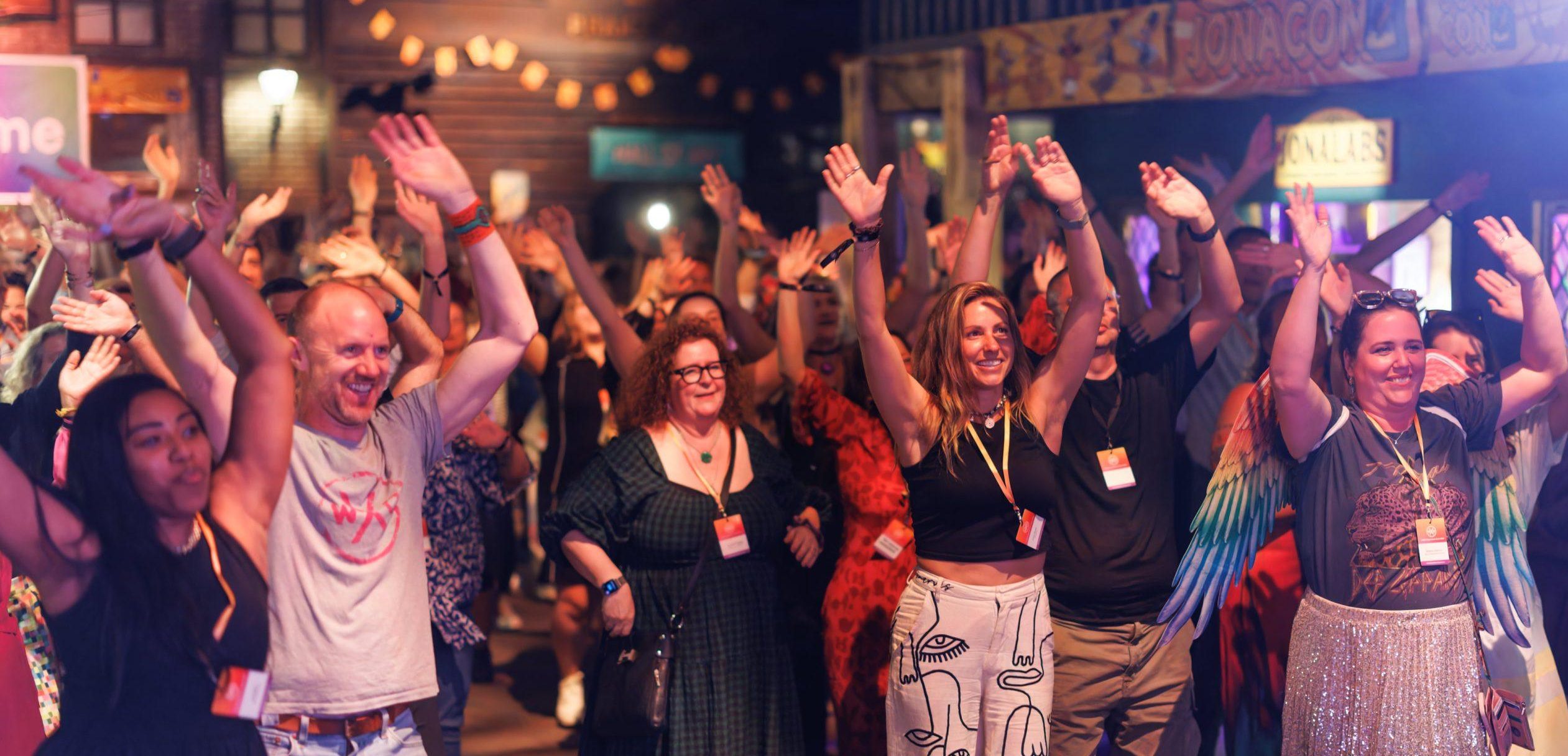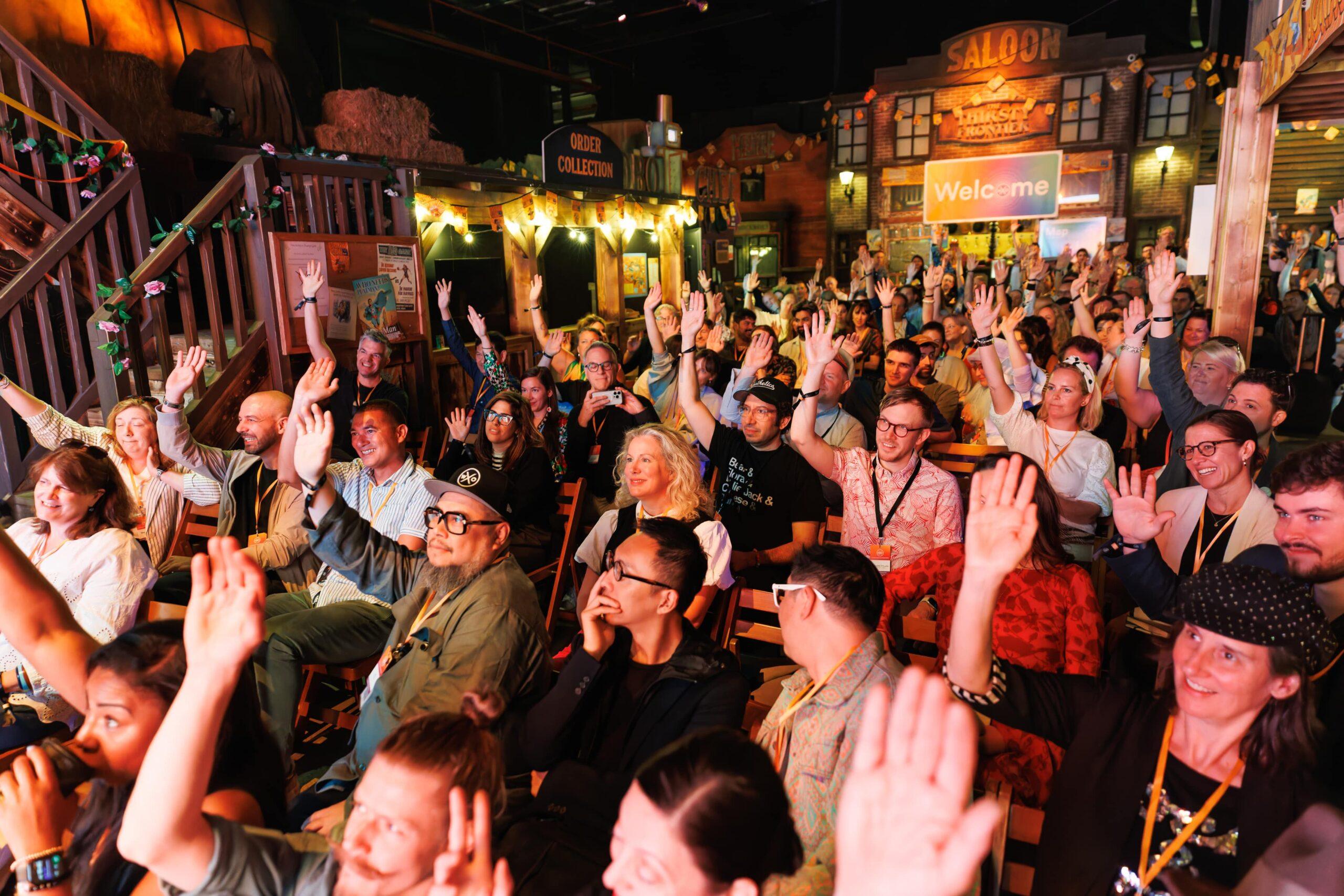One of the highlights of 2022, for me, was experiencing Swamp Motel’s The Drop. Things happened that night that I’d never seen in an experience before. It was weird, and wonderful, and it threw me off-balance in an amazing way.
Since The Drop, they’ve been focused on client projects – and quite a variety. They’ve created a tool to help Deloitte employees focus on climate transformation. They created a VR museum. They made a film.
So I had high hopes when I went down to Saint Jude, Swamp Motel’s new audio interactive experience and one of the 27 Extraordinary Experiences we’d earmarked as a must-see for 2023.
Saint Jude, as I’ve seen declared a few times, is not an escape room. It’s been created in collaboration with a tech firm called Charisma.ai, whose website says they “Power Real-time Digital Humans”.
Saint Jude is a medical facility, and we, the audience-participants, are volunteers. We’re here to talk with people who’ve got stuck in a coma. They have tech, so we’re told, to turn the brainwaves of the coma patients into words, and tech that turns our words into brainwaves. So you can actually talk with a person in a coma.
Great set up, right?
But you know when there’s a little-known band who releases an album that turns them into a cult following… and you just know their next album will launch them into the mainstream? That’s how I felt about Saint Jude.
Swamp Motel know exactly how to make people feel something: to put your teeth on edge, make the hairs on the back of your neck stand up. In a word: uncomfortable.
The experience felt something like… Stranger Things (the Mycotoo / Fever version) meets Black Mirror meets having a conversation with Alexa meets those ‘Choose Your Own Adventure’ books.
Here’s what I and Olivia Squire, the WXO’s Editor, made of it….
James Wallman: “We need people like this to not only be at the cutting edge of what’s possible, but also always pushing the boundaries.”
What’s good about the experience?
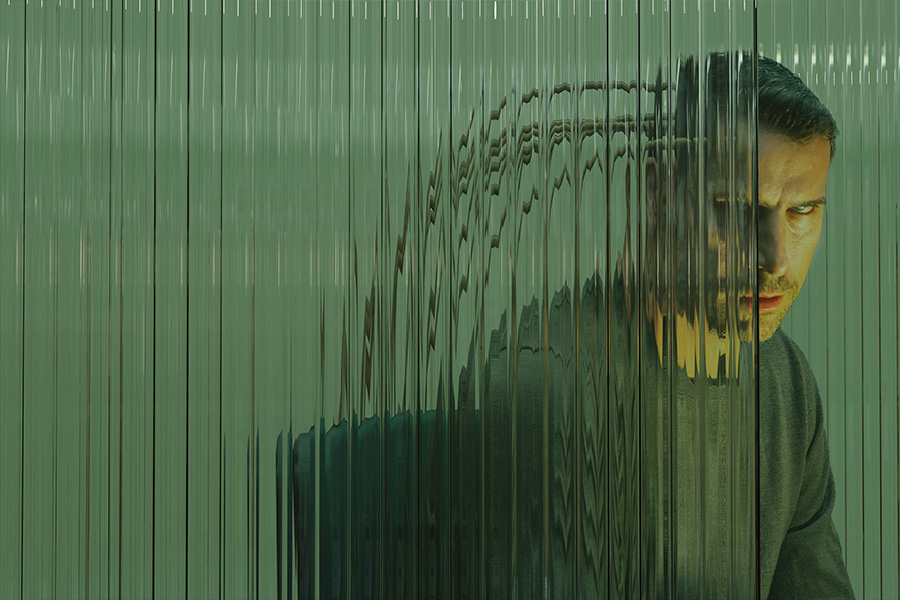
- I love the experimentation, the ‘let’s try this out’ attitude of toying with AI. One of the challenges of immersive experiences is that they’re actor heavy – and therefore cost prohibitive. It’s hard to make money from immersive experiences. Just ask Secret Cinema (and their shareholders)! So working with tech is a good way to work out how to make immersive experiences that actually make money.
- The point of great art, I was always told, is that it makes you feel something. On that basis, Saint Jude is a triumph. It’s weird and wonderful and playful, and made me feel all those things.
- The finish is Disney standard. The tech boxes and cubicles: it’s rare to see a finish like this.
- The tone – of the posters in the reception, the introductory video and the staff – is spot on: sardonic, knowing, smart, funny.
- The soundtrack, in the headphones and in the room, was menacing, and always building. It really had an impact on the sense of foreboding.
What could be improved?
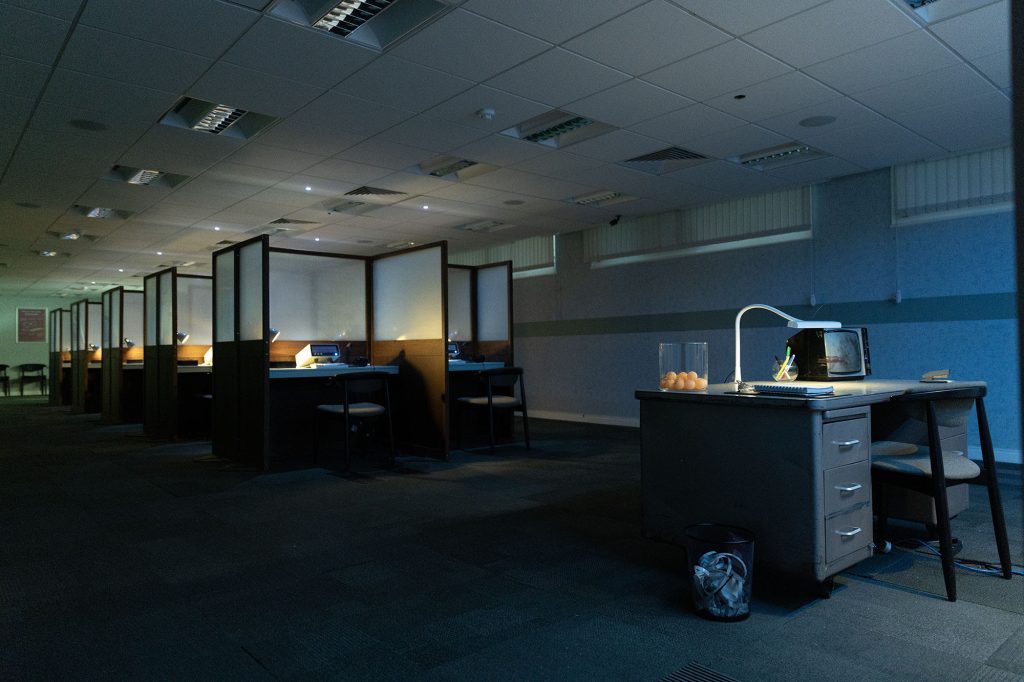
- While I loved the setup and setting, I didn’t quite get into the story. After the intro/welcome video, I was really eager to get in and talk with my coma patient… I sat down, put my headphones on and strapped in for the ride. But somehow the coma patient’s story never took off for me. I found myself not caring. The story was nice, but felt… almost like a watercolour… like a washed-out version of an artificial life. So I never got pulled in and cared for the main character.
- The voice recognition / responses: creating a branching narrative that responds to all the nonsense that the immersive-going general public might say is hard (I used to be a lead conversation writer for an AI chatbot). But the system misheard me multiple times.
- The ending… because I’d missed the story, when I had to get up to solve some clues, the urgency and fear that were always lurking didn’t get into my bones. And then, after leaving, we were each handed a sort of certificate.
- The beginning… the waiting room felt like a waiting room, with a fantastic, too-good-to-be-true poster. But this was the service economy: we were greeted by friendly staff, asked to wait, then called in. Stranger Things managed this transition from service to experience really well: staff slowly changed from smiling, welcoming front-of-house staff to menacing medical facility workers.
Which elements do you like so much you’d like to use them in your work?
- Swamp Motel remind me of the designer Faye Toogood. Whereas some designers – the lighting designer Tom Dixon for instance – have a signature, some, like Faye, don’t. Every collection is reinvention. Maybe Swamp Motel are the Toogood of the immersive experience world.
- From escape room mayhem to VR museum to a short film to a surreal, AI audio thriller, I certainly hope so. We need people like this to not only be at the cutting edge of what’s possible, but also always pushing the boundaries. Saint Jude didn’t have the whizz-bang sharp intake of breath moment – for me – of The Drop, but it made me feel very weird and uncomfortable, and still talking about it a week later. And it made me wonder about the future of healthcare, and excited about the future of experiences.
Olivia Squire: “I expected more interaction and opportunity to influence the narrative than there actually was.”
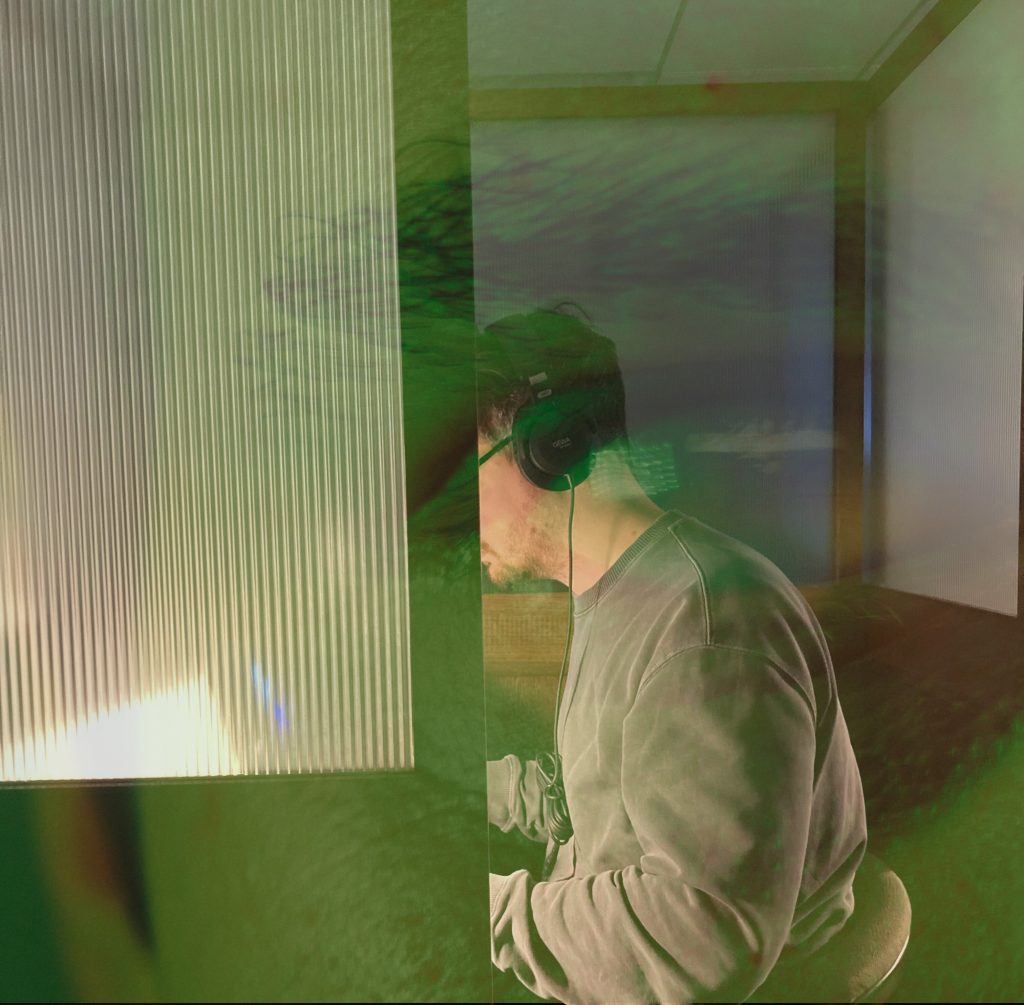
What’s good about the experience?
- The pre-show briefing. Being led down an anonymous corridor past doors with ominous titles, curtained-off areas, and posters warning of “consciousness transfer”, meant that by the time we sat down to be briefed on our duties I felt excited and a tiny bit scared, like something was truly about to begin.
- The setup when you sat down at your “echosump”. Each piece of tech felt pleasingly sci-fi and retro all at once, and the small details in the cubicle, like a sand garden and miniature rake, put me in “office mode”.
- The humour – a line about “the fucking macarena” and the interminable awfulness of office parties made me laugh out loud. I also enjoyed some of the poetic details in the writing, like “feeling like my legs are full of spiders”.
- The way that the foreboding music ramped up in intensity and volume throughout the experience was subtle, but effective. I couldn’t immediately tell if the vibrations were the music or my own nerves.
- Spoiler alert! The “reveal” when a string of my personal information was relayed back to me did give me a shiver of dread and pause for reflection on how much I merrily give away in my “real” online life.
What could be improved?
- I love reading long stuff. I love writing it in the hope that other people do, too. But being presented with a booklet full of fairly complex information upon arriving on a Saturday night with friends wasn’t the best vibe, and standing in silence trying to assimilate the contents killed the anticipation a bit. Plus, the key points were relayed to us in the live briefing, so I wonder if this time could have been used to immerse us in another way.
- The lack of autonomy. It absolutely infuriated one of my companions, who once he realised there was a pre-determined path, essentially checked out for the whole experience. I enjoyed meandering through the story, but it felt more like a binary CYOA book of my youth then a genuinely interactive adventure. I expected more interaction and opportunity to influence the narrative than there actually was. I wanted to have more open-ended conversations and riff off the character’s responses, but there was a lot of dead air if I tried to go off course.
- The ending. We all finished at different times, got up ourselves and went downstairs, and got given a printout while we waited for our mates, next to those people who were waiting to go in. It was a bit of a whimper rather than a bang, and the whole experience felt incomplete to me… I would have loved it if as in The Drop, the action continued in real life once the audio part of the experience was over. Me and a friend who happened to finish at the same time went around trying door handles and exploring empty rooms on the way out as we wanted there to be more to discover, to no avail! I also wonder if we might have put a dampener on the experience for those waiting to go in, who might have overheard our discussions.
Which elements do you like so much you’d like to use them in your work?
- Loved the poetry and the black humour.
- I liked the way it presented back information you’d given throughout the experience in a different context at the end in a way that felt jolting and made you reflect on how and why you’d parted with it in the first place. It’s a skill to be able to wrong-foot your audience like that!
If you’re in London and would like to try Saint Jude for yourself, you can book tickets here. Performances run until 12 March 2023.
Read more WXO Experience Reviews here – if you would like us to review your experience, get in touch.

